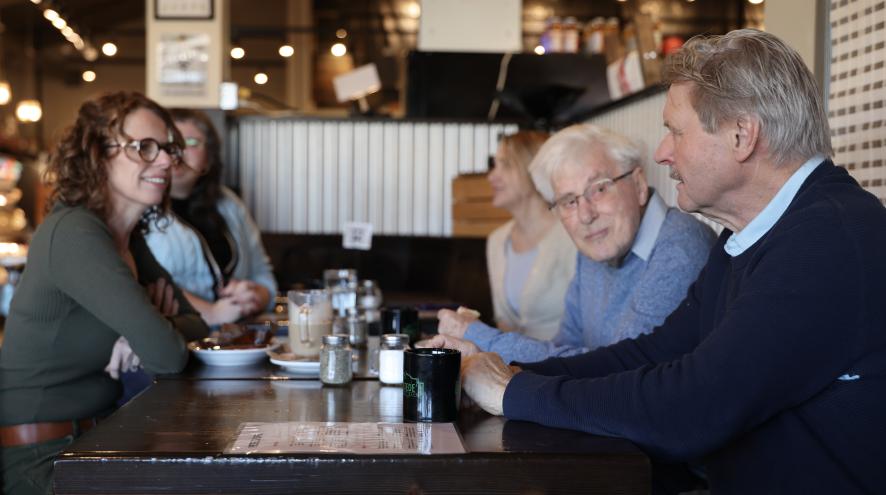Dementia-Friendly Canada
By the year 2050, more than 1.7 million Canadians are expected to be living with dementia, with an average of 685 being diagnosed each day. We all have a role to play in creating a country where people living with dementia are met with compassion and are acknowledged as rightful members of society.

What is Dementia-Friendly Canada?
A dementia-friendly community is a place where people living with dementia, their family and care partners feel welcomed, included and supported.

The term “community” can refer to geographical parameters but also includes groups of people gathered around shared interests or features. This means that cities and towns can become dementia friendly, as can organizations, businesses, grocery stores, faith-based groups, local coffee shops and book clubs.
The Dementia-Friendly Canada project is a national initiative with a broad focus on raising awareness and creating shared educational materials and resources that support the development of dementia-friendly communities across the country.
Dementia-Friendly Communities initiatives are more localized efforts, with a specific focus on implementing and adapting dementia-friendly practices within individual municipalities, organizations and communities at the provincial or regional level.
Dementia-Friendly Communities initiatives

Click here to connect with your provincial/local dementia-friendly communities team
Thank you to the Public Health Agency of Canada (PHAC)

The Dementia-Friendly Canada project was made possible thanks to funding from the Dementia Community Investment from the Government of Canada, administered by the Public Health Agency of Canada.
The Society applauds the Government of Canada for recognizing the impact of dementia, as well as its commitment to creating more understanding and acceptance of dementia.
The views expressed on the Dementia-Friendly Canada webpages do not necessarily represent the views of the Public Health Agency of Canada.


